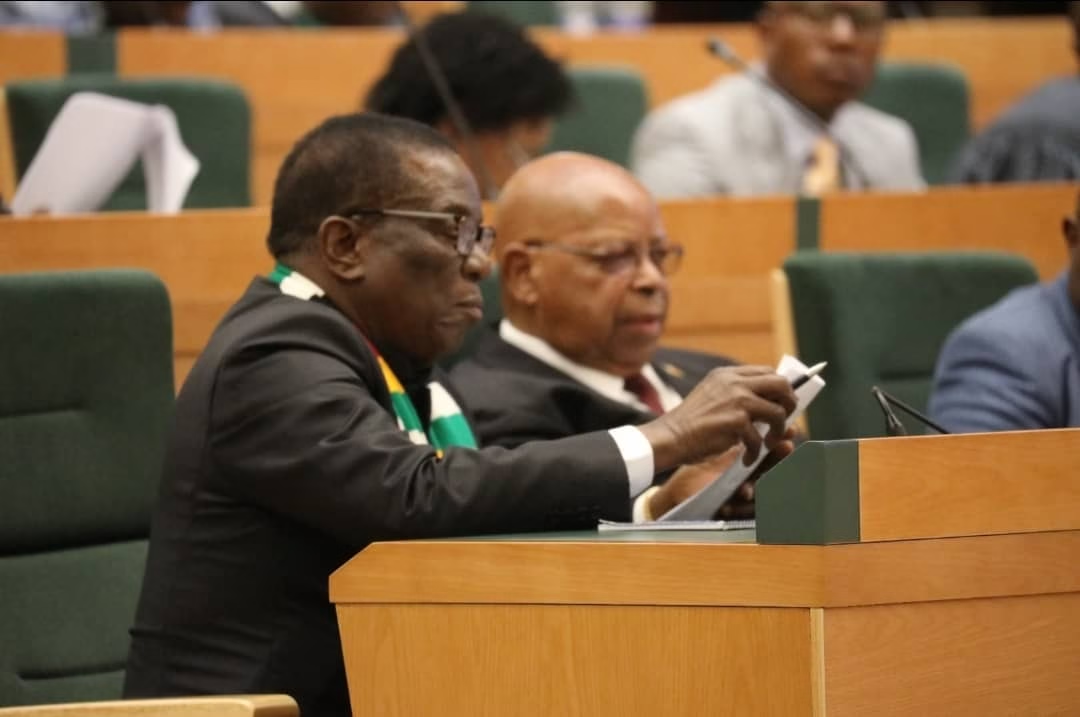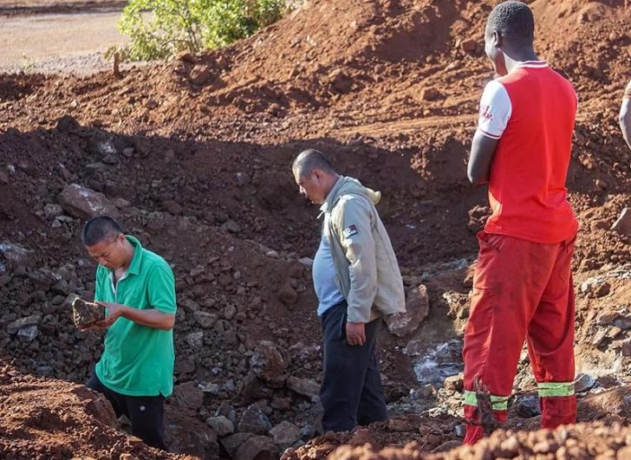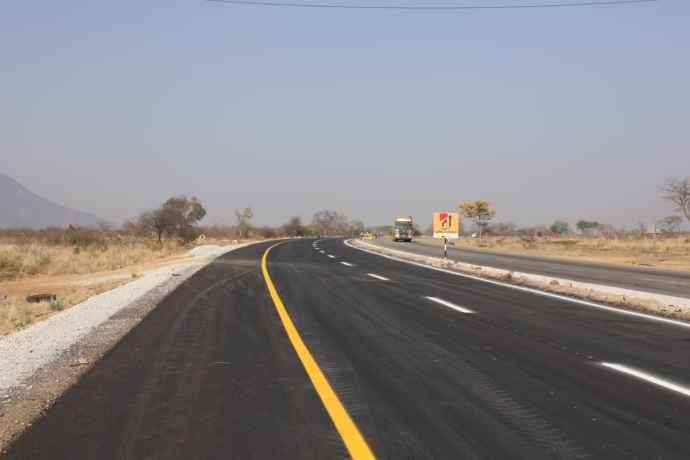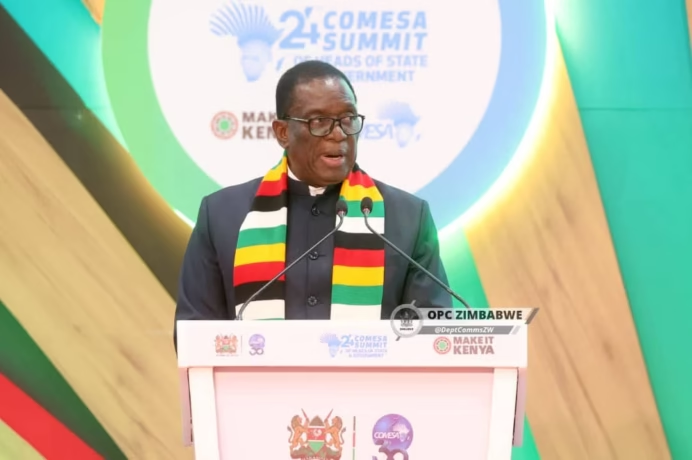
AldridgeDzvene, Positive Eye News
Yesterday, in an unannounced but deeply symbolic gesture, President Emmerson Mnangagwa quietly entered the National Assembly and took his seat. He did not come to deliver a formal address, nor to preside over a state event. He came to watch, to listen, and to sit among lawmakers during a routine session. And in doing so, he reminded Zimbabwe, not with slogans but with presence, that leadership must be both visible and accountable. It was a powerful political statement, delivered not through words but through posture.
The President’s unexpected appearance may have surprised Members of Parliament, but it didn’t disrupt proceedings. Rather, it sharpened them. Questions became more deliberate, ministerial responses more careful, and the atmosphere, though respectful, became more focused. Speaker of Parliament, Advocate Jacob Mudenda, was quick to clarify any confusion, pointing out that in terms of Section 116 of the Constitution, the Legislature comprises both Parliament and the President. “He has every right to be here,” said Mudenda, as heads nodded in recognition. But beyond the legal correctness of it all, the emotional and political impact was clear. This was a head of state choosing to be among his people, not above them.
In that moment, Zimbabwe witnessed something rare, a President not performing but participating. And while his silence spoke volumes, the House itself was far from quiet. MPs raised urgent, grounded questions that echoed the pulse of the nation. Issues of expanding nursing training centres to meet healthcare demands, concerns over the implementation of urban surveillance systems to curb disorder, questions around the fairness of the Presidential Amnesty criteria, and passionate pleas to address rising human-wildlife conflict all filled the chamber. Ministers responded with varying degrees of detail, but what mattered most was that the bridge between policy and people felt, for once, tangible.
The symbolism of this moment cannot be overstated. It happened at a time when Zimbabwe is preparing to host the Ramsar COP15, a major international conference on wetlands, in Victoria Falls. While all eyes are turning to the grandeur of Victoria Falls, the real test of leadership is happening right here in the halls of Parliament, where daily decisions shape the lived experiences of ordinary Zimbabweans. Yesterday’s gesture by the President, coupled with the seriousness of parliamentary discourse, suggests a country beginning to find its rhythm, one grounded in dialogue, responsiveness, and national confidence.
But this must not be a one-day wonder. The President’s visit should not be remembered merely as a curious event on the calendar, but as a new tone in governance, one where leaders show up even when they are not expected to. One where ministers account for their portfolios not in press statements, but in the people’s chamber. And one where the Constitution is not recited only during ceremonies, but lived, line by line, seat by seat.
As the country takes on international obligations and celebrates its natural heritage in global forums, we must not forget that our strongest statements are made at home. When Parliament debates solutions for real people, when the Executive listens and responds, when citizens feel seen and heard, that is how a nation rises.
Yesterday, Zimbabwe saw something small but monumental, not a performance but a presence. A nation watching its leaders, and a leader watching his nation. It is this kind of quiet power, anchored in humility and action, that we must now nurture into culture. Because it is not the headlines that build nations, it is the follow-through. Let this be the start of something more.




